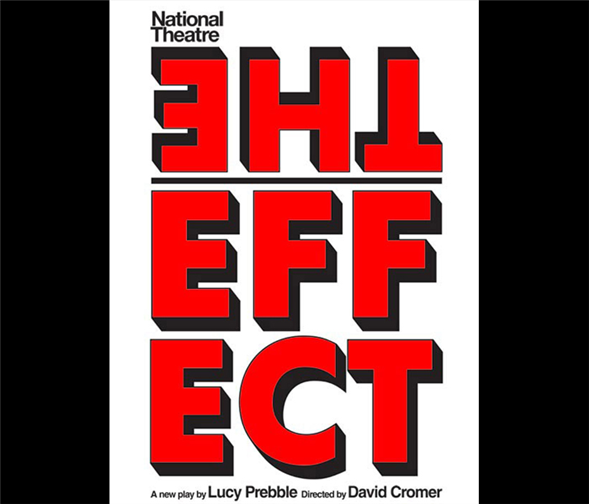Translate Page

David Cromer and Lucy Prebble grapple with side effects
---
If you're creating a show about science, then how much science do you need to know? That's the question before playwright Lucy Prebble and director David Cromer, who have brought Prebble's play The Effect to the Barrow Street Theatre.
A hit in London in 2012, the piece follows clinical trials for a new super anti-depressant. Two young volunteers -- Connie, a psychology student, and Tristan, a charming drifter -- are taking the drug to discover if there are side effects, and they suddenly tumble into an affair. But are their feelings real or just chemistry? And what happens when things go off the rails?
To some extent, the play is about the nature of love and relationships, and you don't need a chemistry degree to connect with those themes. But still, the scientific terms and concepts are also part of the story.
"The goal is to have the audience with you every minute," says Cromer. "So I try to treat the audience as if I were one of them. I have a theory – it sounds like an excuse to be lazy, and it may in fact be an excuse to be lazy – but I think it is important that I not know too much more than the average audience member. I worry about losing sight of what is going to be perceivable by them if I know a lot of things beforehand. So there isn't anything going on onstage that I don't understand in that regard."
To the end, Cromer says Prebble, whose play Enron came to Broadway in 2010, has been careful not to overload her script with scientific jargon and medical details. But that's not to say the play isn't grounded in facts.
"I always do a massive amount of research for everything I work on," says Prebble via email. "It's mostly a confidence crutch, just so I feel I have given myself 'permission' to write the play. Often there's one tiny corner in an old book where some throwaway story just bowls you over, and it becomes the basis for a whole character or something. And I'm paranoid that if I miss reading the one chapter of that one book, I'll miss that moment."
Meanwhile, the director and the cast did acquaint themselves with some of the science, and during rehearsals there were experts on hand to answer questions, including a psychiatric advisor and a nurse familiar with clinical trials.
Prebble says the idea for the play came after a disastrous drug trial in the UK where volunteers were left with distended heads and physical disabilities. "I realized I knew nothing of this extreme but necessary world of drug testing on humans for money," she explains. "There's something a bit macabre about phase one clinical trials. You give someone a substance, and you have no idea what its effects will be. And then you just watch them."
She adds, "It made me think about theatre too, and where that meets the physical – things like circus and freak shows. And it made me think also about romantic relationships. How much of love is dealing with people's reactions and then reacting to them and then them again reacting to you?"
This underscores why science and the theatre are natural companions. Prebble says part of her job is demonstrating that medical research "isn't dry or cold or clinical, which it definitely isn't. It's heartfelt and painful and blood- and urine-soaked. Like life."
---
TDF Members: At press time, discount tickets were available for The Effect. Click here to browse our current offers.